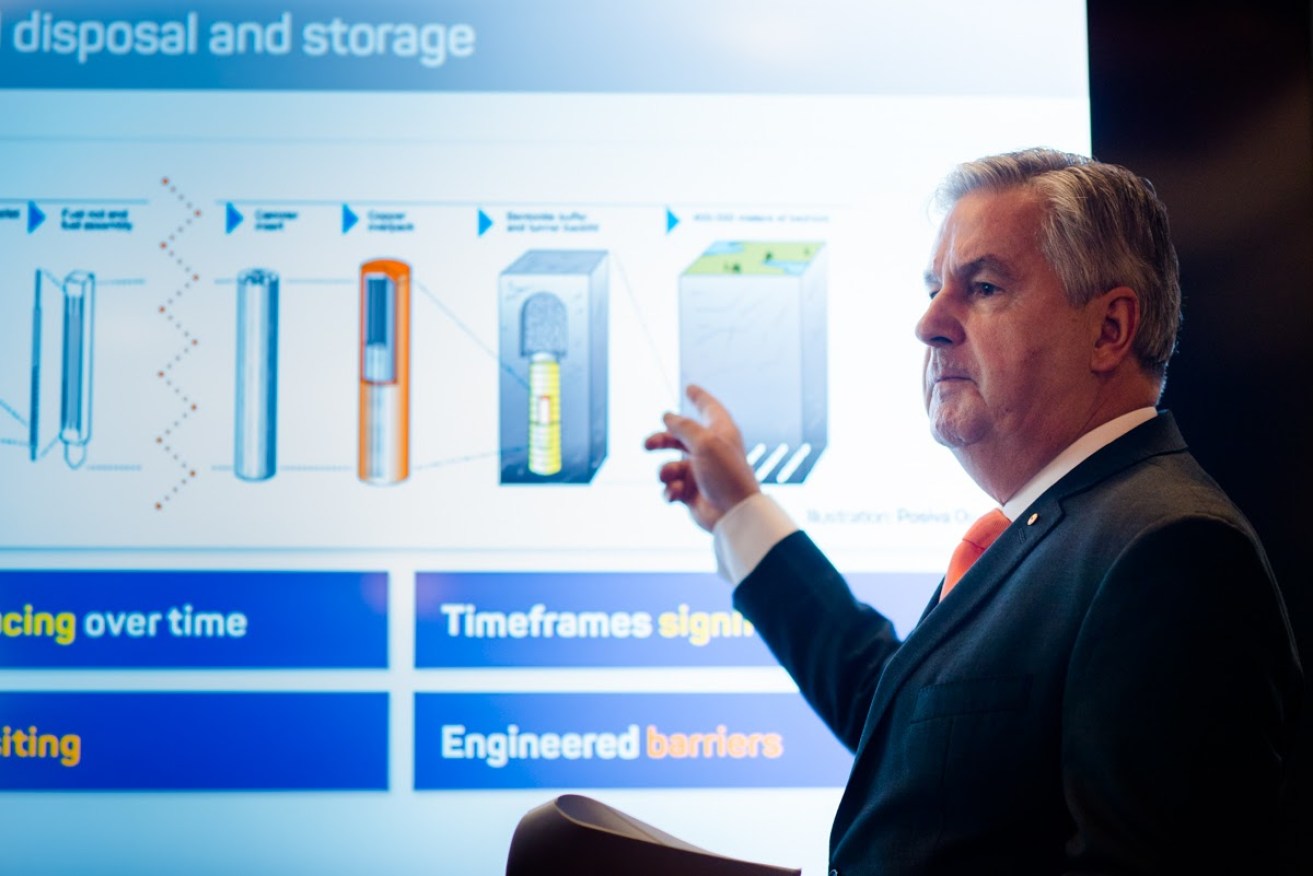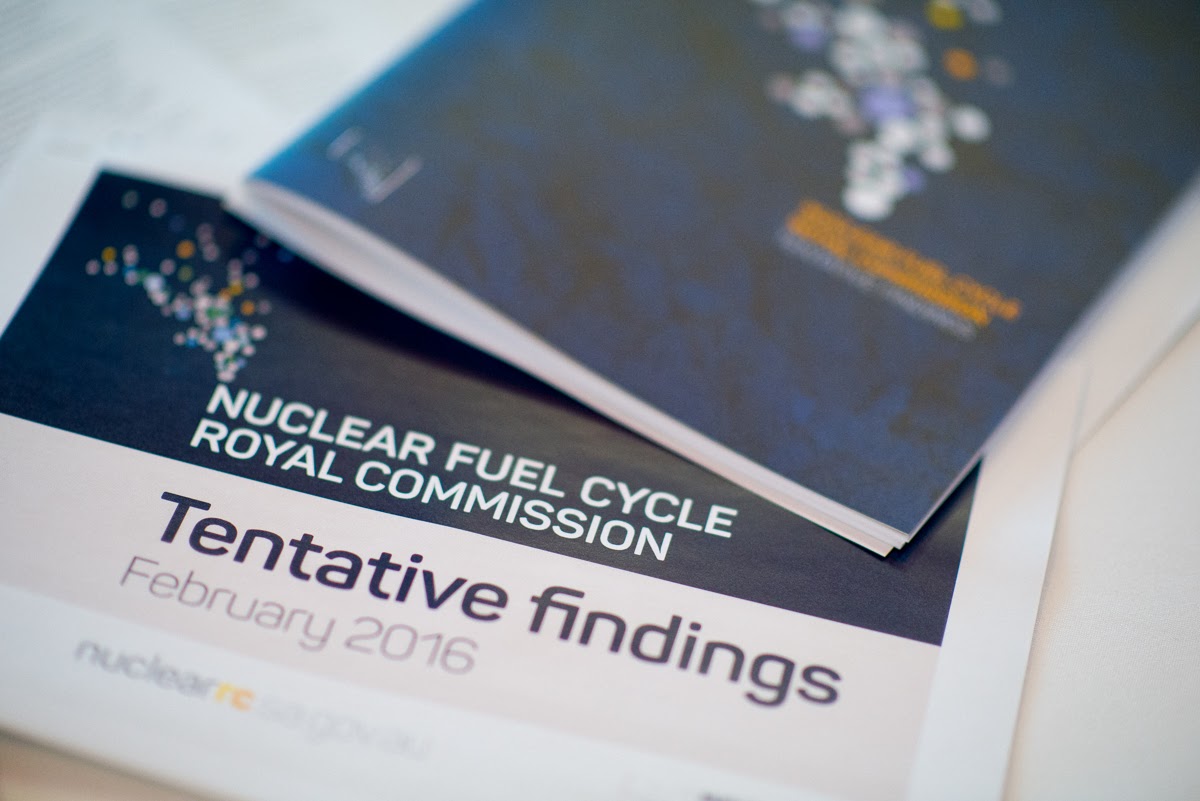Scarce final report not for turning on nuclear dump
Nuclear royal commissioner Kevin Scarce says he will take critiques of his draft findings apart “piece by piece” when he hands down his final report in May.

Royal commissioner Kevin Scarce. Photo: Nat Rogers, InDaily.
The former South Australian Governor and retired naval officer has flagged a conclusion largely in keeping with his tentative findings, which found a compelling business case for a high-level nuclear waste dump to be based in SA, arguing it would contribute billions of dollars annually to the state’s economy.
The assumptions underlying that conclusion were scoffed at in a response by left-wing think tank the Australia Institute last week, which believes the prognostications of wealth beyond measure are grossly exaggerated.
But Scarce says despite heated backlash since his initial report was published last month, “I don’t think I’ve changed my fundamental findings” in the subsequent community consultation.
“I think what I’ve learned is that we need to put more emphasis on the safety and explain how we can be assured that by putting spent fuel into the ground for these periods of time it’s safe to do, so that’s one lesson that we’ve had back,” he told ABC891 this morning.
“We’ve had questions about the clean, green image of SA and we’ve had questions about the timing of revenues and whether indeed this been overly optimistic in terms of revenue and cost.”
But he insists: “I’m convinced that it’s safe.”
“I’ve been now to five countries, I’ve been to facilities, I’ve been to organisations that assure the communities of those countries that this is safe to do,” he said.
“What I always expected I had to do in the final report is explain how countries come to that conclusion that it’s safe to do over these long periods of time.”
He said if he couldn’t adequately “explain the risks and assure the community that it’s safe to do those things then I wouldn’t recommend it”.
He defended his methodology against the Australia Institute criticism, saying: “I’ve looked at their 15-page proposal, and we’ll take that apart piece by piece.”
He said the turn of phrase was not meant “in an aggressive sense”, but to “investigate it, assure yourself that the economic analysis that you’ve provided is appropriate, is correct, is not overstated”.
However, when asked about his rhetorical tone, he responded: “I’m a military officer, what would you expect?”
While he conceded “the reason we put out the tentative findings was to be challenged”, he all but dismissed broad criticism as interest groups “expressing opinions as opposed to going with the tentative findings”.
 “At the end of the day, I think the basis for the financial analysis that we presented is credible, it’s not overstated, but it is based upon assumptions because we don’t have a final facility,” he said.
“At the end of the day, I think the basis for the financial analysis that we presented is credible, it’s not overstated, but it is based upon assumptions because we don’t have a final facility,” he said.
“We’ve put in an enormous amount of time; this is not a desk analysis. We’ve visited countries, we’ve had overseas experts, I’ve had a panel of five economic professors throughout Australia look at the way we’ve modelled to assure ourselves that the process is correct.”
He denied the economic merits of his conclusions were predicated on providing “cheap, above-ground storage for nearly a century”.
“That’s not what the scenario is: we do put it in an interim storage site to collect the revenue to enable us to build the deep geological storage, but it’s not there for hundreds of years,” said Scarce.
He said he would “put more work [into] the financial analysis” for his final report, but added: “I don’t believe that will change the magnitude of the positive [impact] – you know, the revenue versus the cost.”
Premier Jay Weatherill said today the research was still at “a very early stage” and people needed to come to grips with the “factual foundation for this proposal” before further debate about how to proceed.
“We want people to look very carefully at this report [in May], and then we’ll have a public debate about whether we will emerge in this direction,” he said.
“We want an informed, mature and wise debate about whether we should take a further step down the nuclear fuel cycle path.”




